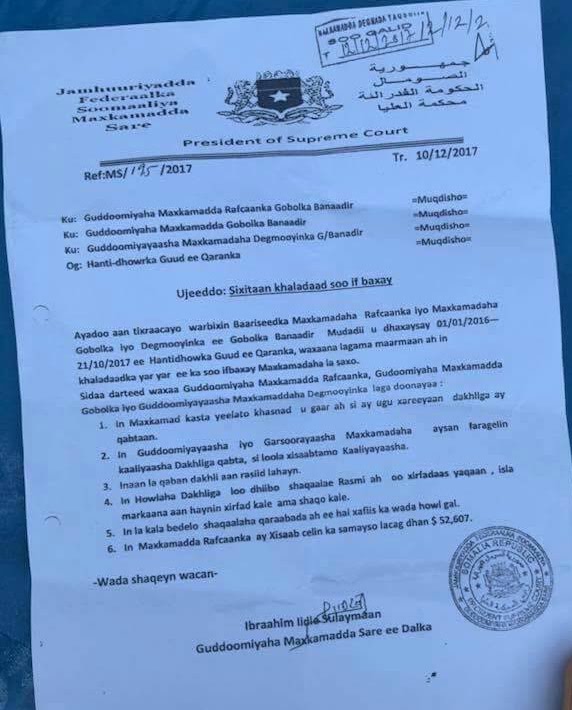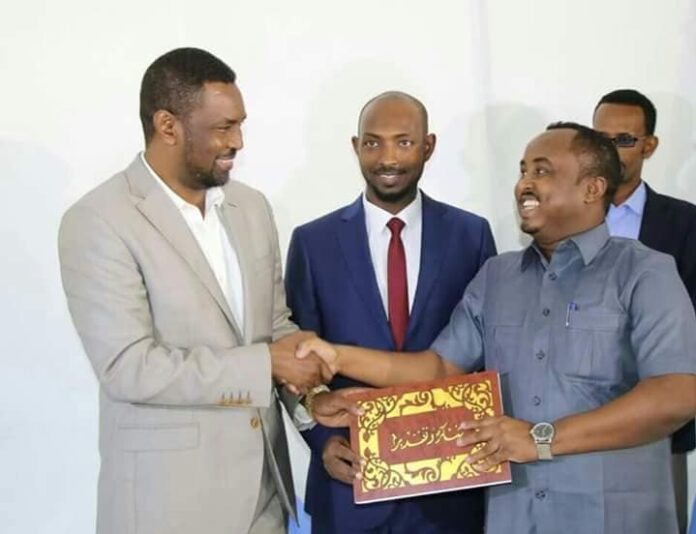A powerful judge Salah Ibrahim Dhiblawe, widely known as Salah Dheere, has been implicated in an alleged fraud case involving an unaccounted sum of $52,607 during his tenure as the chairman of the Banadir Appeals Court in Somalia in 2017.
On December 10, 2017, President of the Supreme Court, Ibrahim Idle Sulayman issued a letter ordering Salah Dheere, who was the Chairman of the Court of Appeals at the time, to return the money.
The purpose of the letter was to address “errors that have come to light.” The letter was received by the Office of the Court of Appeal on December 12, 2017.

According to the letter, Attorney Ibrahim Idle Sulayman sought the repayment of the $52,607 owed by Salah Dheere. Sulayman also emphasized the need to assign the task of collecting income to qualified and knowledgeable officials to prevent any misappropriation of funds.
Copies of the letter were sent to the Auditor General, the Banadir Regional Court, and the District Courts of the Banadir Region, as confirmed by the letter seen by Kaab TV.
The funds in question were part of the revenue collected by the Appeals Court but were not deposited into government accounts as required by law.
Following the release of the letter, Salah Dheere reportedly left the country and spent some time in Sudan and Kenya. He returned to Somalia when Bashe Yusuf assumed the role of Chief Justice of the Supreme Court.
As of now, Salah Dheere has not returned the money as demanded in the letter.
Members of the Somali government have acknowledged that Salah Dheere, who belongs to an armed clan, has refused to address inquiries regarding the missing funds.
President of the Supreme Court, Bashe Yusuf, who attempted to question Salah Dheere about the money, faced threats.
Several members of the Federal Parliament have called for an investigation and the recovery of the embezzled public funds, emphasizing that the government has declared a war against corruption.
When contacted for comment, Salad Dheere did not respond to our queries.
Corruption is pervasive in Somalia, encompassing various sectors such as ports, airports, tax and customs collection, immigration, telecommunications, and the management of aid resources. According to Transparency International’s 2022 Corruption Perceptions Index, Somalia scored 12 out of 100, ranking last among the 180 countries assessed.
The country’s weak administrative infrastructure, limited resources, and wavering political will have hindered effective anti-corruption efforts.
President Hassan Sheikh Mohamud’s promise to tackle corruption and enhance governance in public administration has yet to be realized through a comprehensive strategy.


